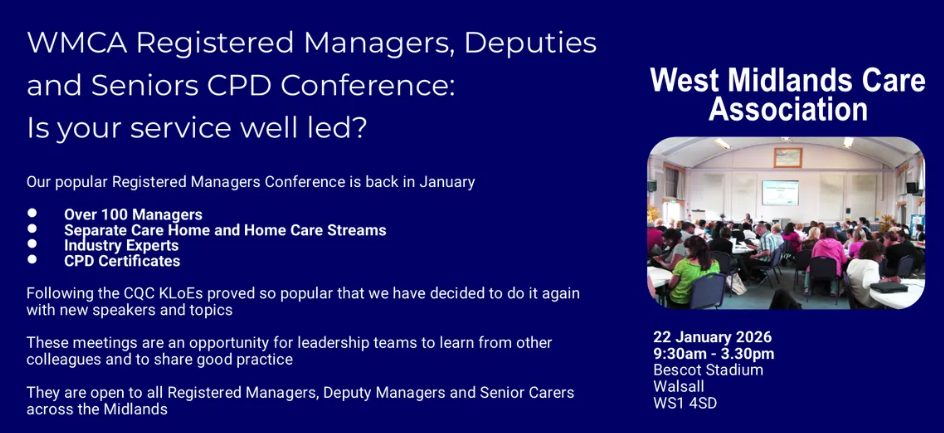A huge highlight of our year was our annual WMCA Excellence in Care Awards event which was held at the Copthorne Hotel in October. Celebrating excellence in care, this prestigious event honoured those who have made significant contributions to improving social care standards. The stories shared by the winners were inspiring and serve as benchmarks for the industry.
Awards were given out to staff working in the following categories in social care:-
• Carer
• Registered Manager
• Deputy Manager or Team Leader
• Senior Carer
• Activity Coordinator
• Domestic Staff (Cleaner, Cooks, Maintenance)
• Office Staff (HR, Admin, Receptionist)
• Director / Owner
• Newcomer
• Social Care Nurse
• Sponsored Internation Worker
• Dignity In Care
• Outstanding Contribution To Care
Each winner received a £500 cash prize plus a certificate, trophy and a bottle of Prosecco. You can find details of all the winners as well as photos from the event on our website by clicking here.
We are already planning next year’s Care Awards and the nominations window will open in May 2026 so keep an eye on our Newsletter/website for further details.

























